Environ 10 résultats pour « Titus (empereur romain) »
-
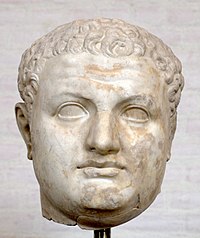
Titus (empereur romain)
Titus, appartenant à la dynastie des Flaviens, est un empereur romain, qui régna de 79 à 81.
-
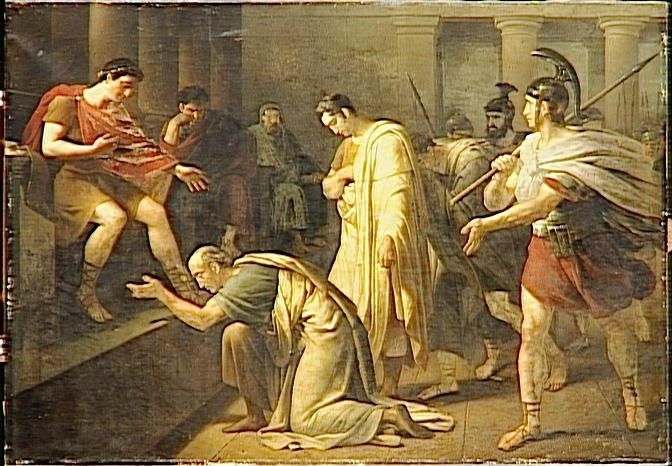
-
- Artiste(s) :
- François-Joseph Heim
TITUS PARDONNE AUX SENATEURS CONJURES
-
- Domaine(s) :
- Peinture
-
- Sujet représenté :
- Conspiration
- Homme
- Titus (empereur romain)
-
- Datation :
- XIXe siècle
-
-
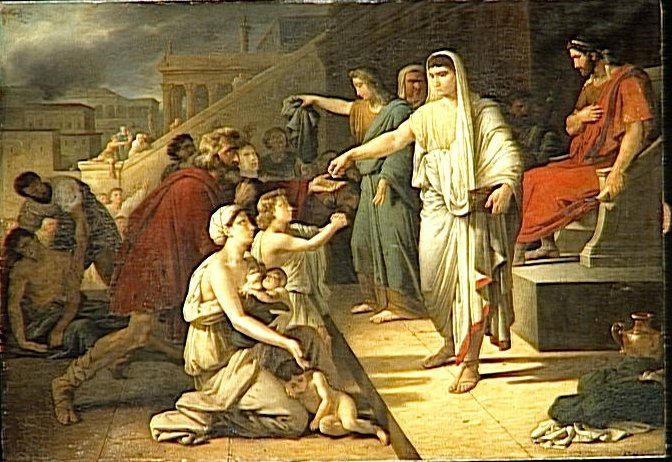
-
- Artiste(s) :
- François-Joseph Heim
TITUS ET VESPASIEN FONT DISTRIBUER DES SECOURS AU PEUPLE
-
- Sujet représenté :
- Foule
- Titus (empereur romain)
- Vespasien
-
- Datation :
- XIXe siècle
-
-
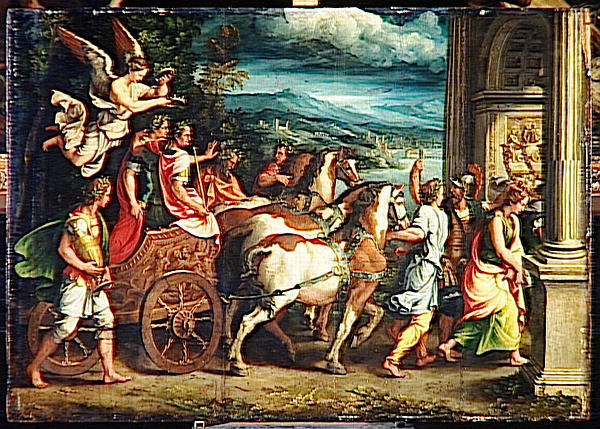
-
- Artiste(s) :
- Giulio Romano
LE TRIOMPHE DE TITUS ET DE VESPASIEN
-
- Domaine(s) :
- Peinture
-
- Sujet représenté :
- Ange
- Arc de triomphe
- Char
- Cheval
- Colline
- Couronne (attribut)
- …
-
- Datation :
- XVIe siècle
-
-
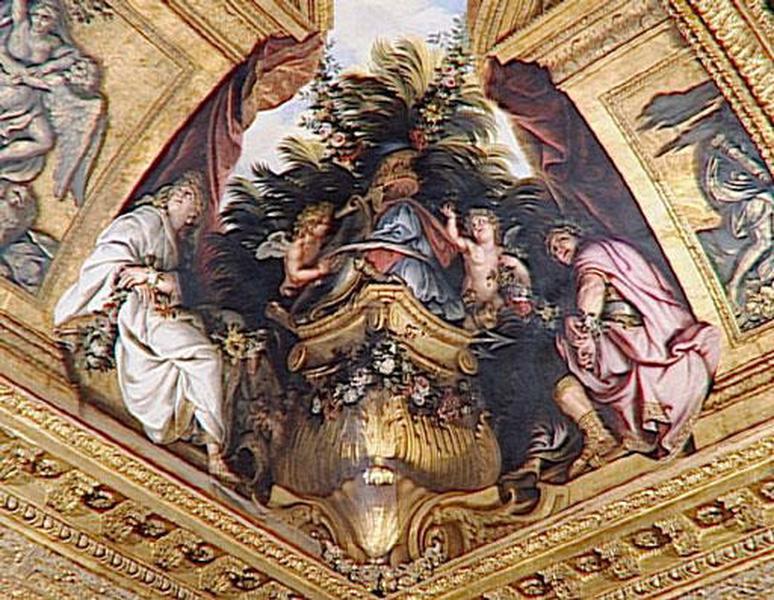
-
- Artiste(s) :
- René-Antoine Houasse
TITUS ET BERENICE
-
- Domaine(s) :
- Peinture
-
- Sujet représenté :
- Bérénice (princesse de Judée)
- Titus (empereur romain)
-
- Datation :
- XVIIe siècle
-
-
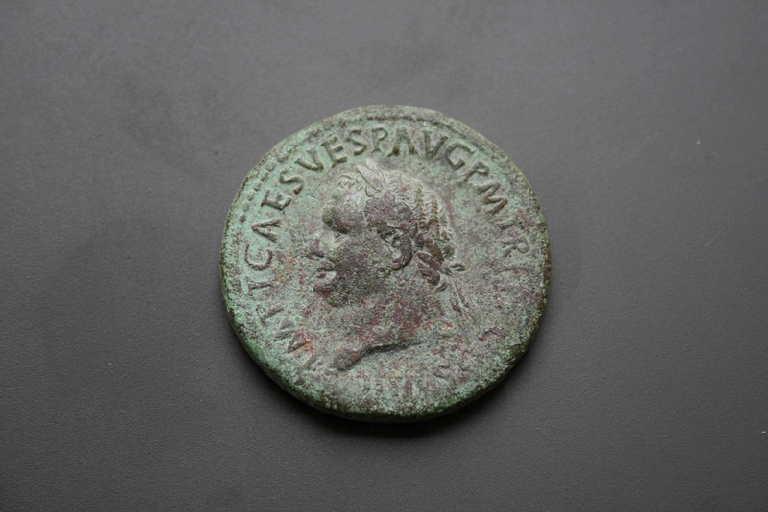
-
- Domaine(s) :
- Archéologie
- Gallo-romains
- Numismatique
-
- Désignation :
- sesterce
-
- Sujet représenté :
- Arecaceae
- Bouclier (arme)
- Casque
- Couronne (attribut)
- Femme
- Homme
- …
-
- Datation :
- Ier siècle
-
-
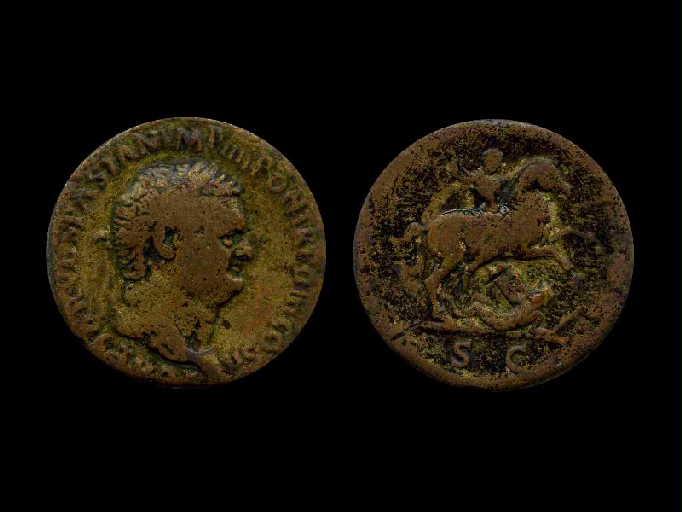
-
- Domaine(s) :
- Archéologie
- Gallo-romains
- Numismatique
-
- Désignation :
- sesterce
-
- Sujet représenté :
- Bouclier (arme)
- Cheval
- Combat
- Laurus nobilis
- Portrait
- Titus (empereur romain)
-
- Datation :
- Ier siècle
- Empire romain
-
-
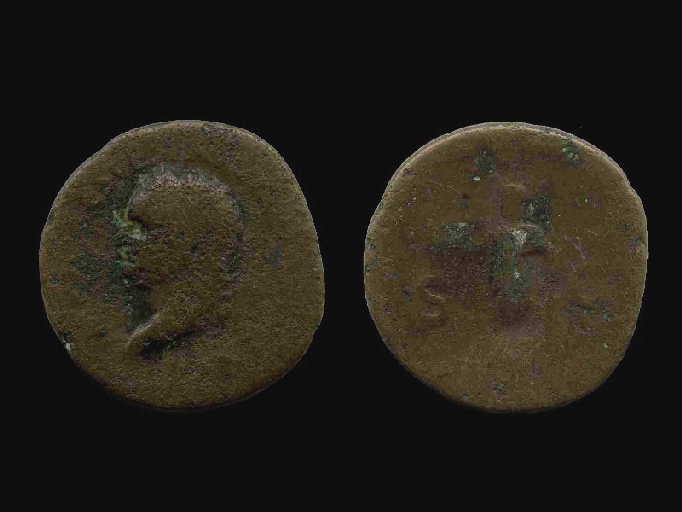
-
- Domaine(s) :
- Archéologie
- Gallo-romains
- Numismatique
-
- Désignation :
- as
-
- Sujet représenté :
- Laurus nobilis
- Portrait
- Titus (empereur romain)
-
- Datation :
- Ier siècle
- Empire romain
-
-
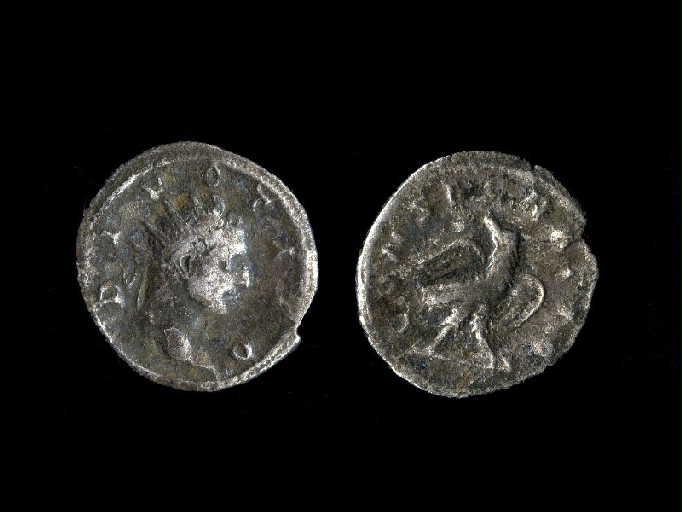
-
- Domaine(s) :
- Archéologie
- Gallo-romains
- Numismatique
-
- Désignation :
- antoninien
-
- Sujet représenté :
- Couronne (attribut)
- Portrait
- Titus (empereur romain)
-
- Datation :
- IIIe siècle
- Empire romain
-
-
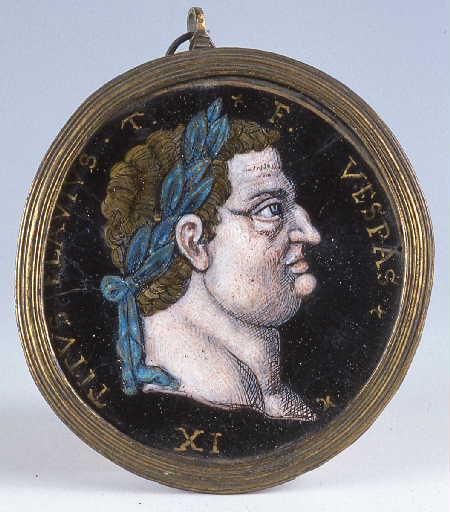
-
- Artiste(s) :
- Anonyme
Tête de l'empereur Titus
-
- Domaine(s) :
- Émail (verre)
-
- Sujet représenté :
- Couronne (attribut)
- Empereur romain
- Homme
- Laurus nobilis
- Portrait
- Titus (empereur romain)
-
- Datation :
- XVIIIe siècle
-
-
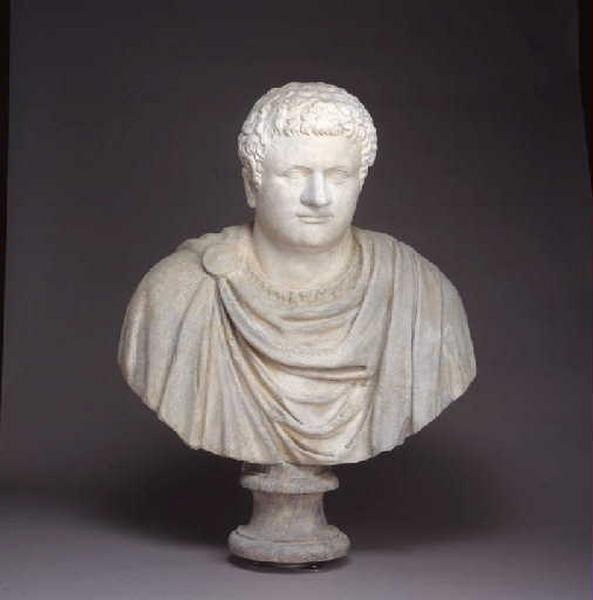
-
- Artiste(s) :
- Anonyme
Buste de Titus, empereur romain (79-81)
-
- Domaine(s) :
- Sculpture
-
- Sujet représenté :
- Empereur romain
- Homme
- Portrait
- Titus (empereur romain)
-
- Datation :
- XVIIe siècle
-
-
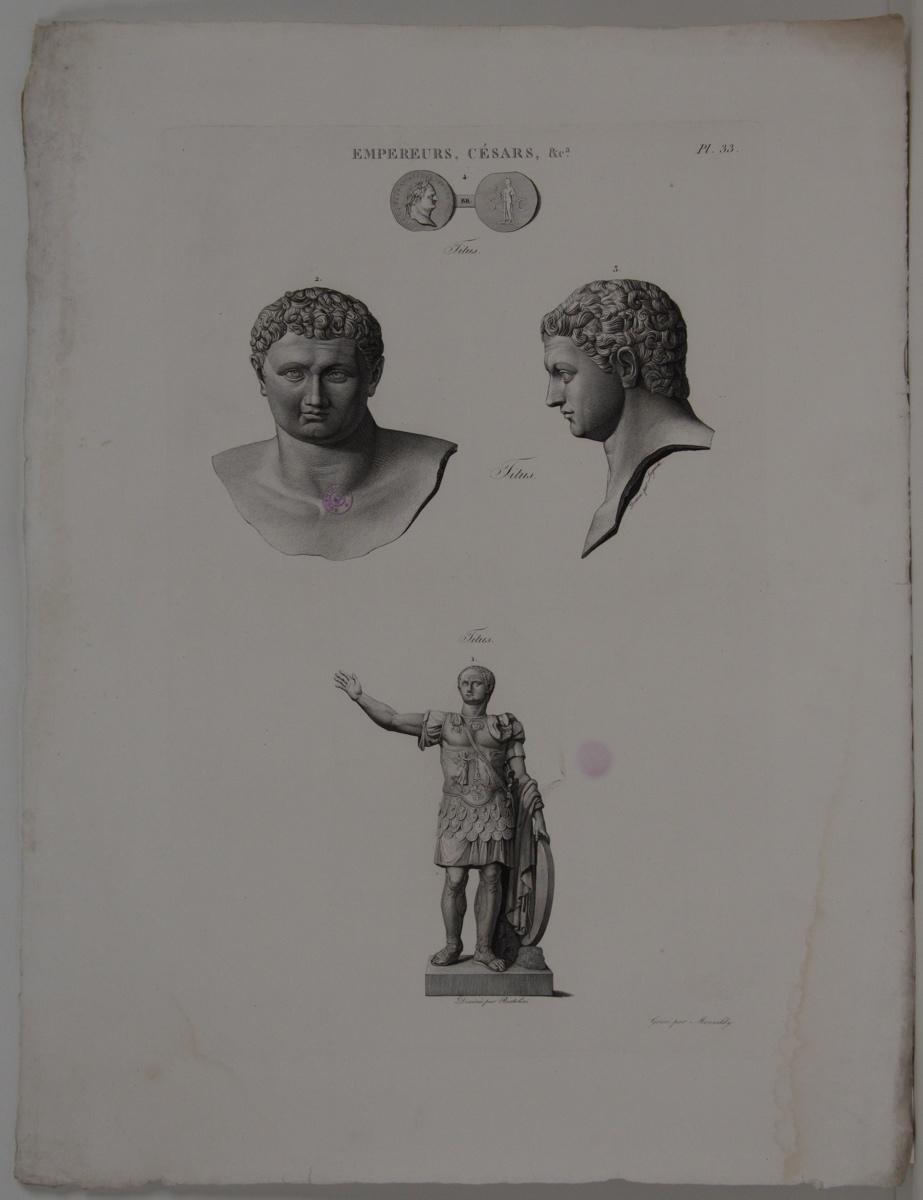
-
- Artiste(s) :
- Pierre Didot
Planches de l'iconographie romaine (pl 33) : Empereurs, Cés…
-
- Domaine(s) :
- Archéologie
- Estampe
- Numismatique
- Rome antique
-
- Sujet représenté :
- Armure (équipement)
- Bouclier (arme)
- Empereur romain
- Homme
- Monnaie
- Portrait
-
- Datation :
- XIXe siècle
-
-

-
- Artiste(s) :
- Pierre Didot
Planches de l'iconographie romaine (pl 34) : Empereurs, Cés…
-
- Domaine(s) :
- Archéologie
- Estampe
- Numismatique
- Rome antique
-
- Datation :
- XIXe siècle
-
